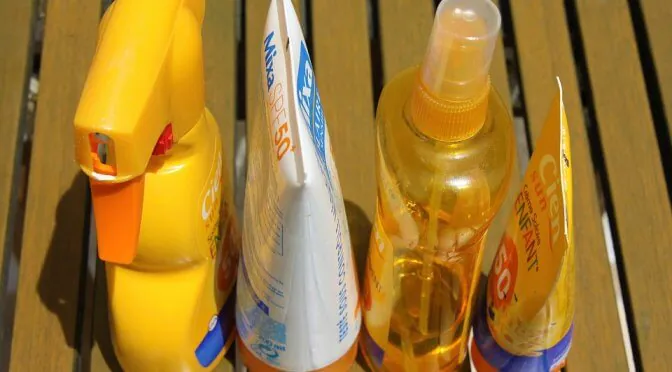The growth of the global sun care products market is on fire and sunscreen is one of the fastest growing segments of skin care, thanks to the increasing number of consumers becoming more conscious about the dangers of sun exposure which can cause premature aging of the skin, tanning, and can also lead to skin cancer. The use of sunscreen products makes the skin cells more resilient against sunlight and reinforces the skin cells’ self-defense mechanism. With all said, there is no denying the fact that the sunscreen market is simply booming worldwide. Considering these facts, the question remains: why there is a Hawaii sunscreen ban?
Hawaii Sunscreen Ban: Why?
There is one problem that is undoubtedly proving to be challenging for the sunscreen industry; The FDA hasn’t approved any new sunscreen ingredients for more than a decade, despite 2014’s Sunscreen Innovation Act. The conventional chemicals commonly used in sunscreen products are posing huge threats to our marine environment, as per the researchers. Consequently, Hawaii, the most recent state to join the United States, has recently formed a legislation to ban the sale of sunscreens that contain two chemicals; Oxybenzone and Octinoxate, effective 2021, and this region had become the first place in the US to take such decision.
The findings from lawmakers and scientists have elaborated that the sunscreen products which contains ingredients such as Octinoxate and Oxybenzone are having significant harmful impacts on the marine environment and existing ecosystems, such as coral reefs that protect Hawaii’s shoreline. In a nutshell, it’s creating a dire situation for our environment and possibly people. Nevertheless, these two ingredients are used in more than 3500 sunscreen products existing in the global suncare market including Banana Boat, Coppertone, and Hawaiian Tropic. These chemicals along with 15 other sunscreen ingredients were approved by FDA in the seventies when there were no stringent rules in place no toxicity test was carried out to choose chemicals based on its effects on the environment.
Read more: Top 10 Suncare Brands in The World 2018
Hawaii Sunscreen Ban: Harmful for the Environment but Safe for Human
Scientific evidence proves that direct sun exposure without using sunscreen can increase the risk of skin cancer and other health issues. As per Food and Drug Administration (FDA), the two ingredients including oxybenzone and octinoxate that are touted as harmful chemicals for coral reefs are safe and effective over-the-counter active ingredients that help in reducing the risk of the most common cancer in the US; skin cancer.
While several researchers applaud the step taken by Hawaii to ban the sale and use of sunscreen products in order to save coral reefs, many critics consider this ban as a mistaken belief. In response to this ban, the Consumer Healthcare Products Association (CHPA) who represent sunscreen manufacturers, released a statement that the ban would severely compromise the welfare and safety of millions of tourists and Hawaii residents as well as would kill almost 70 % of the sunscreen products on the market.
What Sunscreen Industry Can Learn from the Hawaii Sunscreen Ban?
Hawaii’s ban on sunscreen products points out the failure of both the FDA and the sunscreen industry to bring safer, effective and reliable sunscreen ingredients to the market. The need for the innovation of sunscreen ingredients that don’t harm the marine environment while also protecting people from the harmful UV radiations is more than ever today. While this big ban news doesn’t seem to be best for the sun care products industry, it wouldn’t also essentially be a cause of concern. The ban is on the sale of those sunscreen products which contain ingredients such as Oxybenzone and Octinoxate.
While these banned ingredients are present in most of the sunscreen products in the market, mineral sunscreens that use titanium dioxide and zinc oxide to block the sun rays are still allowed. Titanium oxide and zinc oxide are natural alternatives for the Oxybenzone and Octinoxate that some sunscreen brands use and are still able to block the harmful UV rays.
If you’d like to know more about the global sunscreen industry, check this following market report:



